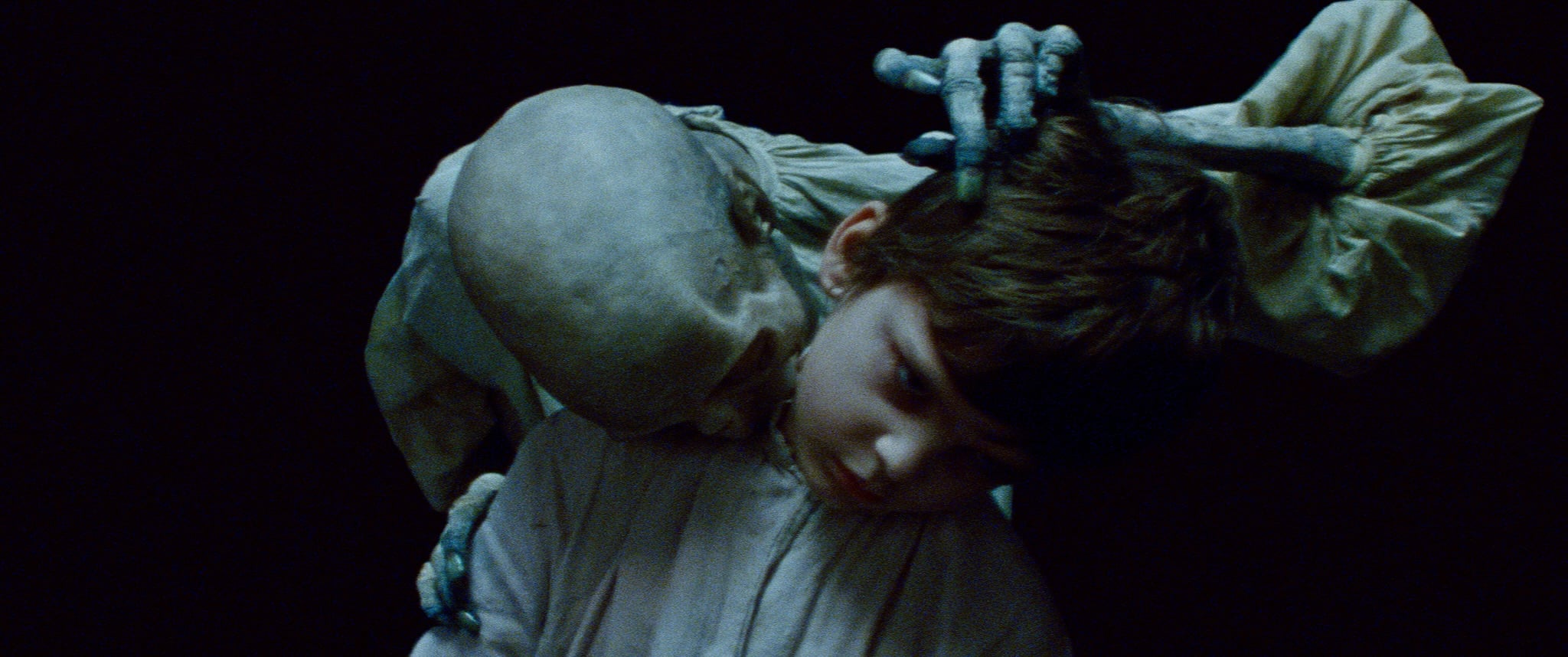‘The Vourdalak’ Review: Uncanny Horrors Linger in This Vampiric Pastoral-Noir

Love can be a curse. From family to romance, it’s an emotion that has a way of finding us before we can see it coming. Some unfortunate souls have a deeper, gorier understanding behind the age-old E.L. James saying, “We always hurt the ones we love” than others. Inherited trauma is no rare thing, and its range is as broad as it is complex. The Vourdalak from director Adrien Beau takes the concept of trauma’s homecoming to its darkest boundaries, and it does so with an unsettling blend of uncanny grotesqueness and pastoral charm.
Based on an 1893 Aleksey Tolstoy novel, Beau’s film is a softly gothic vampiric period piece set deep in the dark woods of rural 18th-century France. It opens with Marquis Jacques Antoine Saturnin d’Urfe (Kacey Mottet Klein) lost in a hostile forest, stripped of his horse and luggage by unfriendly forces. The envoy to the King of France soon finds himself at the remote estate of a mysterious man named Jegor and his enigmatic family. The flamboyant French aristocrat becomes stranded at the estate while waiting for their help sourcing him a new horse.
Jacques finds himself passionately attracted to Sdenka (Ariane Labed), the mysterious eldest daughter of the household whom he first witnessed while in the woods. She’s world-weary, almost like she is aware of oncoming doom. When this strange family can’t feel any more alien to the eccentric nobleman, their dark patriarch, Gorcha (voiced by Beau), emerges from the shadows. He is no longer the man they knew. He has become a Vourdalak; a skeletal, inhuman, undead ghoul who returns to their families so to feast on the blood of their loved ones. And this is exactly what Gorcha intends to do.

Tonally, The Vourdalak is as lovely as it is deeply uncanny. Soft, soapy, and subtle, Beau has shot his debut feature to look something like a lost 70s horror film. His lens frames the woods and the grande estate with love. Humor and romance drip from the frame; its lead Frenchman is as bumbling as he can be loveable. Jacques reminds me of Ichabod Crane, a surprisingly brave yet ultimately incapable soul facing unknowable darkness. Within these lovely daytime set pieces is when the crawling horror of the film first unfurls.
The reveal of Gorcha is shocking. The film’s monster is not constructed with makeup or CGI but is instead born through puppetry. At first, it’s almost comical, but it is always bizarrely frightening. Beau never hides the puppet art form; instead, he embraces it head-on. There is zero attempt at realism, yet this choice always upholds the drama or horror and quickly adds a unique discomfort to the film. There’s something so distinctly not human about this thing. It’s nightmarish and unlike anything you’ve seen before.

A father returning from the grave to torture, terrify, and annihilate his family is a subject that might hit close to home for some viewers. It’s a clean yet brutal representation of the sometimes unrunnable darkness of inherited horrors. Yet the striking lead performances by Klien and Labed balance out this dread. A brooding love story trickles between the two as the world around them turns to charcoal, giving the drama and horror of Beau’s film even more weight and tragedy.
The Vourdalak is one of the year’s best and strangest surprises out of the horror genre—a fresh and aromatic exploration of gothic horrors that will haunt your dreams for the rest of the week. It is a grotesque French fairytale and romantic fever dream that features the strangest and unique use of puppetry you could imagine. It’s one of the best horror films of the year so far.
The Vourdalak is exclusively in theaters from Oscilloscope Laboratories.
-
The Vourdalak
Summary
Adrien Beau’s ‘The Vourdalak’ takes a vision of trauma’s homecoming to its darkest boundaries and does so with an unsettling blend of uncanny grotesqueness and pastoral charm.
